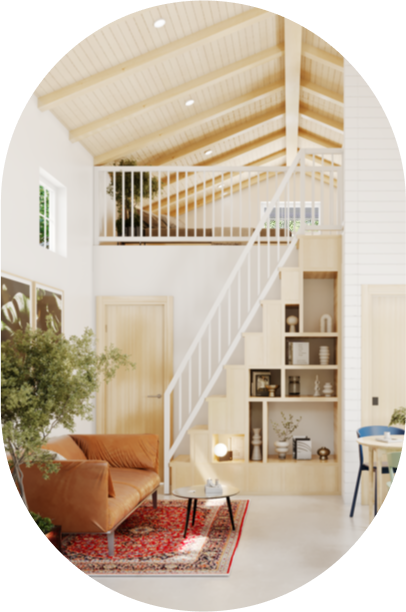In the hustle and bustle of urban life, space is often a luxury. Small home designs, also known as Accessory Dwelling Units (ADUs), emerge as a practical solution for urban dwellers seeking efficiency without compromise. In this article, we explore how small home designs address the unique challenges of urban living, offering a blend of functionality, style, and sustainability.
Addressing Urban Space Constraints
Urban areas are characterized by limited space and soaring real estate prices. Small home designs offer a viable solution to this challenge by maximizing the use of available land and providing compact yet comfortable living spaces.

Compact Living without Compromise
Despite their smaller footprint, small home designs prioritize comfort and functionality. Innovative design strategies, such as open floor plans and multifunctional furniture, ensure that every inch of space is utilized efficiently without sacrificing livability.
Integrating Sustainability into Urban Living
Sustainability is a growing concern in urban environments, where resource consumption is high. Small home designs embrace eco-friendly practices by incorporating energy-efficient features, utilizing recycled materials, and promoting alternative transportation options, contributing to a more sustainable urban lifestyle.
Embracing Minimalism in Design
The design philosophy of small home designs embraces minimalism, focusing on simplicity, functionality, and aesthetic appeal. By eliminating clutter and unnecessary elements, these dwellings create a sense of tranquility and balance in the midst of is urban chaos.
Conclusion
Small home designs offer urban dwellers a practical and sustainable solution to the challenges of modern city living. With their efficient use of space, innovative design features, and commitment to sustainability, these dwellings represent a paradigm shift in urban housing. By reimagining the concept of home in a compact yet stylish package, small home designs pave the way for a more livable and resilient urban future.

